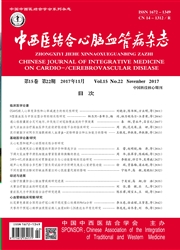

 中文摘要:
中文摘要:
阿尔兹海默症和轻度认知障碍作为神经系统退行性疾病,其认知能力明显下降,大脑复杂度发生变化,排列熵是研究复杂度的新方法。将排列熵方法应用于健康对照、轻度认知障碍和阿尔兹海默症患者的功能磁共振影像图像复杂度分析,并利用支持向量机十折交叉验证估算分类准确率。结果显示,6个脑区在整个病程复杂度出现显著差异,健康对照和阿尔兹海默症的分类准确率达到95.90%.说明排列熵可以作为衡量阿尔兹海默症患者大脑复杂度变化的新指标,同时为阿尔兹海默症疾病辅助诊断提供新视角。
 英文摘要:
英文摘要:
Alzheimer's disease(AD)and mild cognitive impairment(MCI),as the degenerative disease of the nervous system,can significantly decrease the cognitive ability and change the complexity of the brain.The permutation entropy is a new method to analyze the complexity.The permutation entropy was applied in the functional magnetic resonance imaging(fMRI)data of normal control(NC),MCI and AD for the brain complexity,and support vector machines(SVM)10-fold cross validation was used to classify the data.The results show that six brain regions had significant differences in the whole course,and the classification accuracy of NC-AD was 95.90%.It is proved that the PE could be used as a new index to measure the complexity of AD,as well as a new perspective for the diagnosis of Alzheimer's disease.
 同期刊论文项目
同期刊论文项目
 同项目期刊论文
同项目期刊论文
 期刊信息
期刊信息
